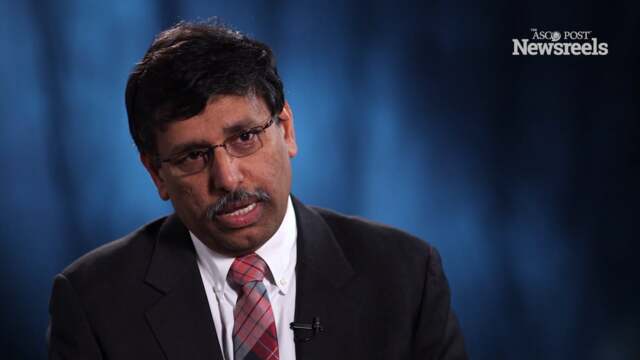Ugo Pastorino, MD, on Reducing Lung Cancer Mortality
2015 IASLC World Conference on Lung Cancer
Ugo Pastorino, MD, of the Istituto Nazionale dei Tumori Foundation, discusses his study, which showed that stopping smoking before or during low-dose computed tomography screening reduced overall mortality by more than 25%, a benefit that is three- to fivefold greater than this type of screening (Abstract PLEN04.07).
Jennifer King, PhD
Jennifer King, PhD, of the Lung Cancer Alliance, gives her perspective on major themes of this year’s meeting: the stigma of lung cancer, the changing face of who is affected, early detection, and advances in immunotherapy.
James R. Jett, MD
James R. Jett, MD, of National Jewish Health, discusses his study of the early CDT-Lung biomarker. His hypothesis: When used in combination with low-dose CT in screening of a high-risk population, this biomarker would increase the detection of early-stage lung cancer (Abstract MINI 12.11).
Eric Lim, MD
Eric Lim, MD, of the Royal Brompton and Harefield NHS Trust, discusses his findings on the nonspecific symptoms of never-smokers, which suggests that imaging could play a more important role in diagnosing these patients at an earlier stage.
Tony Mok, MD, and Fred R. Hirsch, MD, PhD
Tony Mok, MD, of The Chinese University of Hong Kong, and Fred R. Hirsch, MD, PhD, of University of Colorado Health Science Center discuss the highlights of the featured plenary session, which included the conference’s top four abstracts (Abstract PLEN04).
Ramaswamy Govindan, MD
Ramaswamy Govindan, MD, of Washington University, summarizes three important papers: ROVA-T in relapsed and refractory small cell lung cancer, genomic characterization of large-cell neuroendocrine tumors, and the ECOG study on bevacizumab following chemotherapy for resected non–small cell lung cancer.





